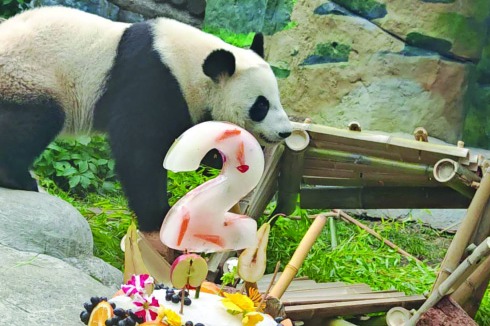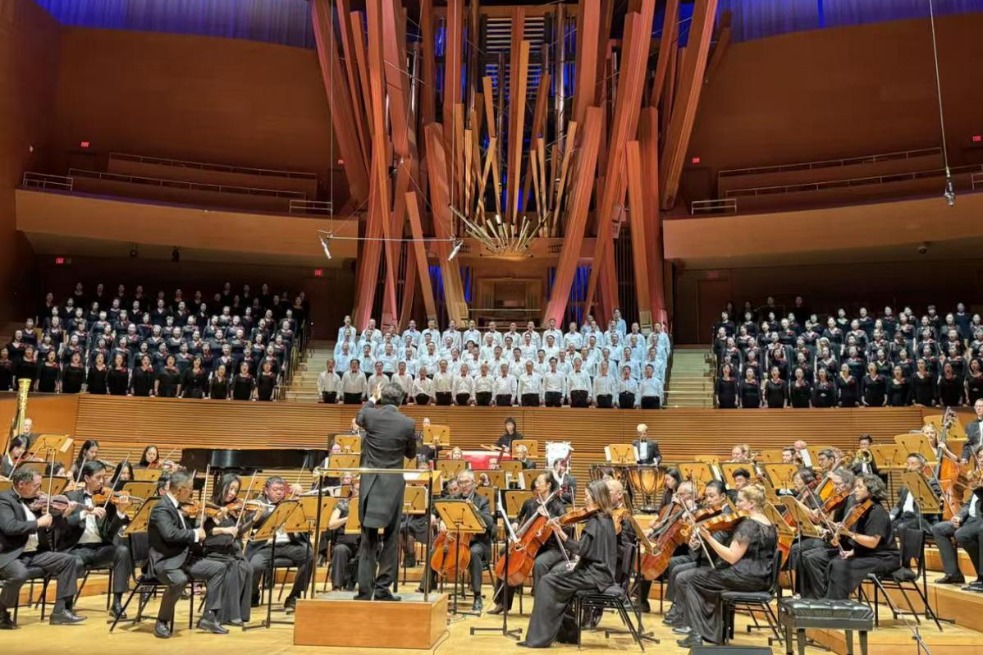Cui: China, US in same 'boat', shouldn't make waves


Chinese Ambassador Cui Tiankai said he believes that China and the US "remain in the same boat", and the common challenge is to navigate through uncertainties or uncharted water for the benefit of both countries and the entire world.
Cui addressed participants at the second session of the 8th US-China Civil Dialogue hosted by the Carnegie Endowment for International Peace in Washington on Wednesday.
Cui said that some Americans believe that China and the US are no longer in the same boat and should not be in the same boat because the US has failed to change China over the past decades.
He said he does not believe the two countries can change each other, as some have advocated.
"China has its own history, culture and political and economic systems. Whatever has happened in China is an outcome of China's long history. I don't think that any country can really change China," Cui said.
"And that shouldn't be the policy goal of any country, including the US. I don't think that was the goal of successive American presidents over the past four decades. I talked with Dr Henry Kissinger and he said that was never his goal or President Nixon's goal when they started to reopen relations with China," said Cui.
Cui disputed the notion that China is a kind of "revisionist country" and is trying to challenge international rules.
He went over the history and argued that China has "joined more and more international organizations, acceded to more and more international treaties and conventions, and accepted more and more international rules" in past decades.
"It took us 15 years to join the WTO (World Trade Organization). We learned about its rules, adapted to them and abided by them. It is fair to say that China's record in the WTO is open, transparent and faithful to our commitment to the organization," said Cui.
The US side has taken a lot of initiatives to revise these rules, "starting maybe with Nixon's abandonment of the gold standard, which was a shock to the Bretton Woods institutions. Then some 20 yeas ago, there was a kind of theory that a country can engage in humanitarian interventions in violation of the sovereignty of states."
(Bretton Woods was a gathering of 44 Allied nations in New Hampshire in 1944 to regulate the international monetary and financial order at the end of World War II.)
"More recently, you see the US withdraw from the Paris Agreement, Iranian nuclear deal and UNESCO (United Nations Educational, Scientific and Cultural Organization). Some even propose that the US should withdraw from the WTO."
On June 1, 2017, US President Donald Trump announced that the US would cease all participation in the 2015 Paris Agreement on climate change mitigation. Last October, the US announced that it would withdraw from UNESCO, which works to protect cultural and natural heritage sites across the globe. On May 8, Trump declared that the US was withdrawing from the Iran nuclear deal.
"I don't know whether this will happen and how far the US will go. If we look at all these historical records, maybe the name "revisionist country" is more suitable for the US than for China," said Cui.
Cui also pointed out that some people believe that as China develops, it will try to challenge the position of the US and its dominance in the world, but he does not think this is a correct interpretation of China's intention.
Cui said that some people are worried about China's notion of "entering a new era of development".
"Some are scared by the term 'new era'. I have met with some very serious American scholars who asked me this question — does China's new era mean the end of the American era? I have full respect to those serious scholars, including Graham Allison, with whom I had long conversations. I think his book to a large extent has been misinterpreted. He was not advocating for the so-called Thucydides Trap. He was saying that we could avoid this trap," said Cui.
"There are many misunderstandings and misinterpretations about China's goals and intentions. What we mean by this new era is that China has entered a new stage of development, with the major challenge being to meet the people's ever-growing needs for a better life and address unbalanced and inadequate development. Of course, China will have to develop itself in an open environment. We cannot close our door. But this new era is mainly for China's own development, not for global dominance," said Cui.
Cui said that the perception that over the years of economic and trade relations, the US has got all losses and China all gains is not in line with reality.
"Our economic and trade relations are interdependent and mutually beneficial. We should not focus so much on the trade deficit, because there are a lot of structural reasons behind this deficit," the ambassador said. "Moreover, trade deficit does not mean all losses to the country that has deficit. And surplus does not mean all gains to the country that has surplus."
Cui advised that for those arguments that China and the US are in different boats, and should ride in different boats, or even have a head-on collision, "they are not supported by facts".
"It does not serve the good of anyone. Unfortunately, there are those who are trying to rock the boat. For instance, they are painting a distorted picture of our economic and trade relations. Some of them have even gone further by playing with fire on issues of Taiwan and others that concern China's territorial integrity. These are very dangerous developments. We have to be very careful about it," said Cui.
"I still believe that our two countries remain in the same boat. Hopefully dialogues like what we have today will help the two governments to develop policies that are pragmatic, constructive and beneficial for both countries," Cui said.
Contact the writer at leshuodong@chinadailyusa.com

































